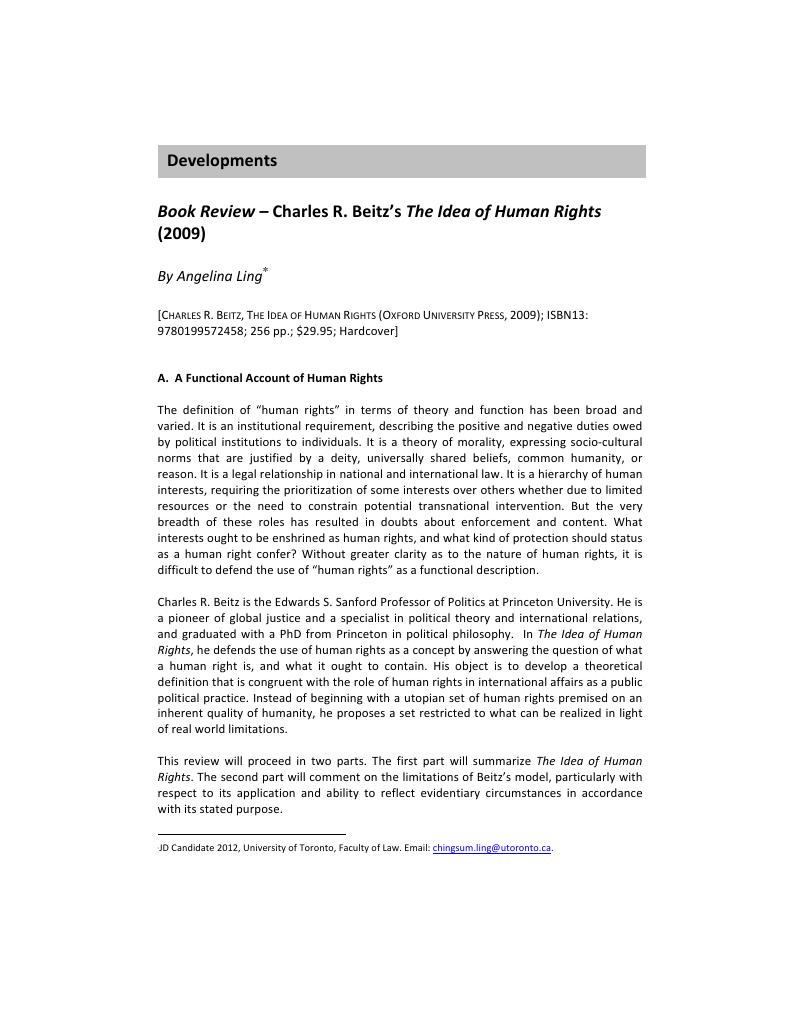No CrossRef data available.
Published online by Cambridge University Press: 06 March 2019

1 Beitz, Charles R., The Idea of Human Rights 43 (2009).Google Scholar
2 Id. at 128.Google Scholar
3 Id. at 167, 171.Google Scholar
4 Id. at 171.Google Scholar
5 Id. at 205.Google Scholar
6 Cheah, Pheng, Inhuman Conditions: on Cosmopolitanism and Human Rights 162 (2006).Google Scholar
7 E.g. Porteous, Tom, British Government Policy in Sub-Saharan Africa under New Labour, 18 International Affairs 281 (2005); Francis Owusu, Post-9/11 U.S. Foreign Aid, the Millennium Challenge Account, and Africa: How Many Birds Can One Stone Kill?, 54 Africa Today 3 (2007).Google Scholar
8 E.g. Moran, Mayo, Rethinking the Reasonable Person: an egalitarian reconstruction of the objective standard (2003).Google Scholar
9 Castaneda, Jorge G., Not Ready for Prime Time: Why Including Emerging Powers at the Helm Would Hurt Global Governance, 89 Foreign Aff. 109, 112 (2010).Google Scholar
10 Beitz, supra note 1, at 196.Google Scholar
11 Beitz, supra note 1, at 40.Google Scholar
12 This point is covered comprehensively in Etinson's review. I chose to engage with Etinson's review because he is a philosopher focusing on moral theory and human rights. While my comments are targeted towards interdisciplinary and evidentiary issues, Etinson focuses on the theoretical basis for Beitz's perspective and the interaction between Beitz and other philosophers. See Adam D. Etinson, To be or not to be: Charles Beitz on the Philosophy of Human Rights, 16 Res Publica 441, 443 (2010).Google Scholar
13 Beitz, supra note 1, at 138.Google Scholar
14 Etinson, supra note 12, at 445.Google Scholar